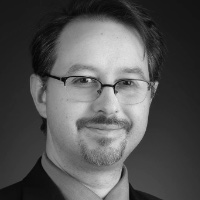DeepSec 2021 Talk: Building a Cybersecurity Workforce: Challenges for Organizations – Matthieu J. Guitton
The shift of human activities from offline to online spaces has major impacts on organizations – either public or corporate – in terms of security, therefore creating a constantly growing need for cybersecurity experts. Although for small companies, expertise can come from external providers, large organizations need to build their own cybersecurity workforce. The limited number of higher education formations result for companies in tension in the employment market, and in the recruitment of people whose expertise is not primarily on cybersecurity. Furthermore, cybersecurity often focuses on technical aspects, and does not always deal enough with the human factor – while the human factor is critical for companies and other large organizations. This presentation will explore the challenges related to building a workforce in cybersecurity from the point of view of organizations. We will notably discuss how to build a workforce that can take on both the mission of first line defenders, and the mission of education of the other company members, ranging from its higher operatives to the basic workers, and how cybersecurity can be operationally articulated between security services and IT professionals.
We asked Matthieu a few more questions about his talk.
Please tell us the top 5 facts about your talk.
- Cybersecurity is not just a question of programming.
- Building a cybersecurity workforce is central for any organisation to secure its assets.
- Although building a cybersecurity workforce is a complex task, this can be rationalized and follow a logical strategy.
- Building a cybersecurity workforce needs to be an interdisciplinary process.
- The cybersecurity workforce of an organization needs to be tailored to the needs of this organization.
How did you come up with it? Was there something like an initial spark that set your mind on creating this talk?
As both a researcher dealing with cyberpsychology on the one hand, and with international studies and counter-intelligence research on the other hand, investigating the human factor in cybersecurity was a logical outcome. This talk is directly coming from the research done in my research team.
Why do you think this is an important topic?
As we are relying more and more heavily on technology, the question of cybersecurity is central. In order to secure their assets and data, organizations will have to strongly invest in cybersecurity, and specifically in building their own cybersecurity workforce.
Is there something you want everybody to know – some good advice for our readers maybe?
When you think about building a cybersecurity workforce for your organisation, think globally, and not just about the technical aspects.
A prediction for the future – what do you think will be the next innovations or future downfalls when it comes to your field of expertise / the topic of your talk in particular?
Cybersecurity is becoming central in any organization, especially in the post-COVID era. It is not taking a big risk to predict that developing an optimal cybersecurity workforce will be critical for numerous organizations – governmental agencies and private companies alike – in the near future.

Matthieu J. Guitton is Secretary (Vice-Dean) of the Faculty of Medicine, Full Professor at the Faculty of Medicine and at the Graduate School of International Studies at Université Laval (Quebec City, QC, Canada), Fellow of the Royal Anthropological Institute, and Senior Researcher/Group Leader at the CERVO Brain Research Center (Quebec City, QC, Canada). He is the Editor-in-Chief of Computers in Human Behavior (Elsevier’s leading journal in the field of cyberpsychology), and of Computers in Human Behavior Reports, and serves on several other editorial boards, such as Current Opinion in Behavioral Sciences. A graduate from the University of Rouen and Université Pierre et Marie Curie – Paris VI, he obtained his PhD from the University of Montpellier (France) and was a Koshland Scholar/Postdoctoral Fellow of Excellence at the Weizmann Institute of Science (Israel). He has published over 120 research papers, book chapters, or editorials on subjects ranging from neuropharmacology and health sciences to cyberpsychology, cyberbehavior, or security issues. His most recent works have appeared in journals such as Computers in Human Behavior, the International Journal of Intelligence and CounterIntelligence, or the International Journal of Intelligence, Security, and Public Affairs.
